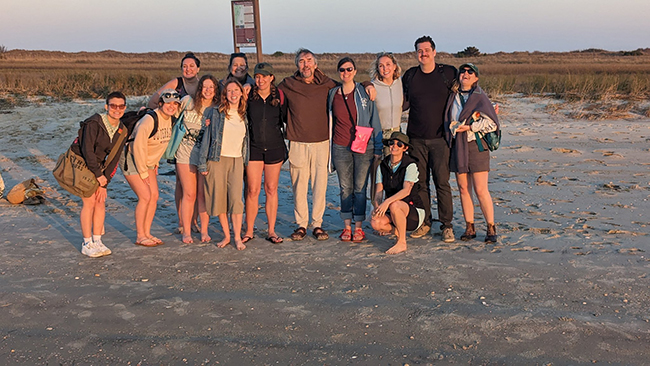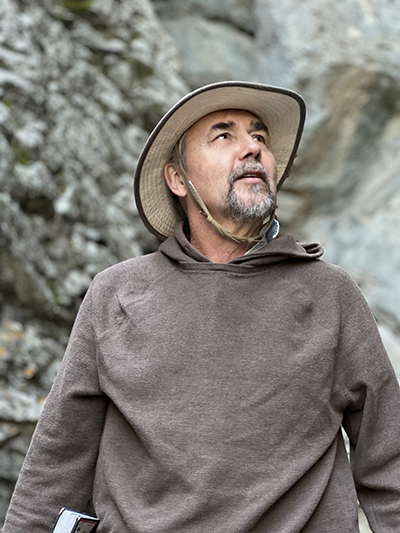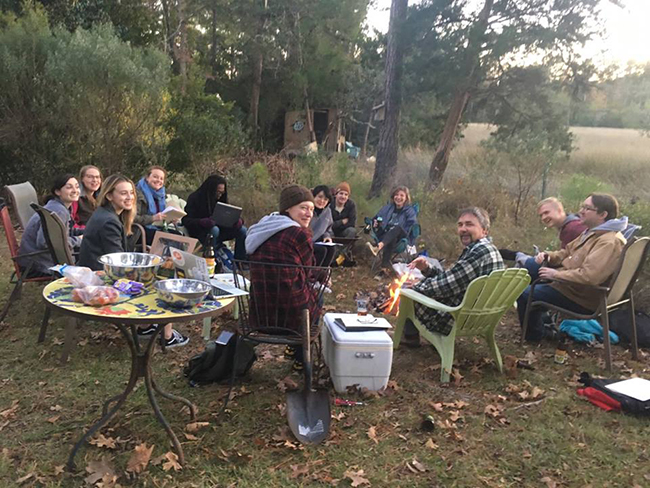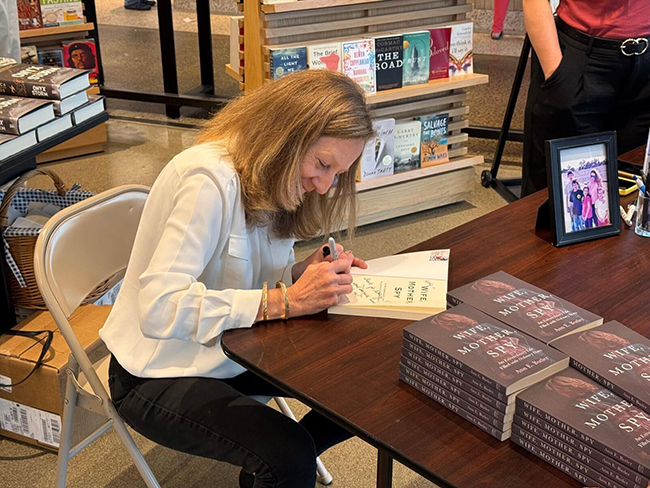From Bestselling Books to Lessons in Environmental Writing
05 Jan 2025
From Bestselling Books to Lessons in Environmental Writing
David Gessner shares his gift for environmental storytelling with the Cape Fear region
By Vera Wilson

Meet David Gessner. Born in Massachusetts but now calls Wilmington home base, Gessner is the author of 14 books, four of which have landed on the New York Times Best Sellers list.
Gessner is a writer of memoir-style nonfiction, but I hesitate to pigeonhole him as he can also easily be described as an investigative journalist, environmentalist, historian, even humorist. He gravitates to sharing stories about the outdoors, and by immersing himself in the environs he’s writing about, he’s able to offer readers his up-close and personal ruminations about the natural world and the animals and humans that occupy it, and how their beauty and purpose are increasingly being threatened.
Gessner didn’t always plan to write nonfiction. After graduating from Harvard and the University of Colorado, he, like so many creative writing graduates before him, set out to write the great American novel.
“I was working on these novels, and not really getting anywhere,” Gessner says. “But what was happening was, I was trying to write fiction, and on the side, I was keeping journals. And I was living in these beautiful places, first in Cape Cod in the off season and then in Colorado. So more and more my writing, even my fiction, started to be about nature.”
His journeys can be deeply personal, as in his first book, A Wild, Rank Place: One Year in Cape Cod, that details the time he spent caring for his terminally ill father in their family cottage. Under The Devil’s Thumb journals his importunate push-back against his own cancer.
“I guess in a way both of those cancers shaped my writing,” Gessner says. “I was going to say my father more, simply because my first book was really about nature and about Cape Cod, it was really also about his death. … What really ended up happening is his voice was ending, he was dying, and mine was kind of growing.”
“My own recovery occurred in the [Colorado] mountains,” he continues, “and I'll always associate Boulder…with that return to health. The books are dark in a way, but they're also these celebrations that come from my recovery and getting healthy.”

Every writer has a motus operandi. Gessner tends to write in the stillness of the morning.
“I’m a fanatic, early morning,” he says. “Yeah, get up at four. I'm writing by five. And, you know, I'm done by 10 in the morning.”
That dovetails nicely with his job as a UNCW professor in the creative writing department by allowing him to devote time and energy to his students. He’s also founder of the school’s literary journal, Ecotone, and this fall, he was awarded the Thomas S. Kenan III Distinguished Professorship of Writing. Later next year, he plans to introduce a number of Environmental Writing workshops and electives.
But making the move to Wilmington wasn’t in Gessner’s life plan. In what he refers to as his breakthrough book, Return of the Osprey: A Season of Flight and Wonder, he emphatically stated that he will never leave Cape Cod.
“I've got a kind of running joke with that, in that, you know, the book kind of ends on this Wendell Berry-esque note where I say, ‘I will stay on Cape Cod forever.’ And that, indirectly, is how I got my job at UNCW when a professor there read the book and asked me to apply for a job,” says Gessner.
His more recent books seem to have taken on a greater urgency about the state of the planet as climate change and other man-made disasters continue to make their indelible mark. His sometimes-grim account of his travels to climate hotspots isn’t so much a call to action as it is about creating awareness.
As he explains on his website, “One of the challenges of writing about climate change for me is you're expected to do it as kind of a fact-filled book report or warning of doom.… I think what we need to do is kind of shake out writing about climate. You don't read a novel because at the end there are takeaways and a things-to-do list, or you're supposed to save the world. You read it because it permeates your awareness. That’s what I want to do.”

His newest work, The Book of Flaco: The World’s Most Famous Bird, chronicles Flaco, a Eurasian owl who was illegally freed from his enclosure at the Central Park Zoo. Averting capture, he was left to his own devices in the urban wild and became an international sensation.
The book garnered the attention of People Magazine which published a shout-out about the book this past summer. The book’s release date is set for February 11, 2025, the anniversary of Flaco’s death.
For more information on Gessner or to order one of his books, please visit davidgessner.net.













